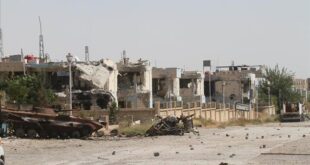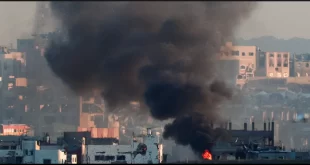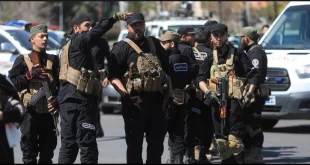Jan 7, 2015, al-Akhbar
An estimated 670,000 children in Syria are being deprived of education after the Islamic State of Iraq and Syria (ISIS) extremist group ordered the closure of schools until the curriculum is made to conform with its medieval reading of the Islamic Sharia, the United Nations Children’s Fund (UNICEF) said Tuesday.
ISIS declared a “caliphate” on land it seized in Syria and Iraq in a sweeping offensive back in June, committing wide scale massacres, sexually enslaving women and girls and recruiting children as fighters.
“In December there was a decree of the Islamic State [ISIS] ordering the stoppage of education in areas under its control,” UNICEF spokesman Christophe Boulierac told a news briefing.
The militant group decreed that schools be closed until the school curriculum had been made “compliant with the religious rules,” he told Reuters, adding that children enrolled in primary and secondary schools in Raqqa, and rural areas of Deir al-Zor and Aleppo provinces are affected by the closures and teachers are forced to undergo “retraining.”
Prior to 2011, Syria had one of the best rates of basic education enrollment in the Middle East with 96%. The number is currently estimated to be lower than 40%, according to a 2014 report by the Economic and Social Commission for Western Asia (ESCWA).
The report also said that the effects of this drop in enrollment and access to proper education is expected to impact the country severely for many generations to come.
In early August, ISIS announced it was banning philosophy and science in Raqqa schools, claiming that the subjects “do not fit in with the laws of god.”
ISIS has also banned many other subjects in the Syrian state curriculum, including social studies – namely civic engagement and nationalism – fine arts, music, history, and religion, including Islamic and Christian studies.
In all, 4.3 million Syrian children are enrolled nationwide this school year, according to the education ministry, but between 2.1 million and 2.4 million are currently either out of school or attending classes irregularly, UNICEF said.
Moreover, UNICEF said that at least 160 children were killed and 343 wounded in attacks on schools across Syria last year. The toll was probably an under-estimate due to difficulties of access and obtaining data, Boulierac said.
“In addition to lack of school access, attacks on schools, teachers and students are further horrific reminders of the terrible price Syria’s children are paying in a crisis approaching its fifth year,” Hanaa Singer, UNICEF representative in Syria, said in a statement.
 Syria Support Movement solidarity with the Syrian people
Syria Support Movement solidarity with the Syrian people




